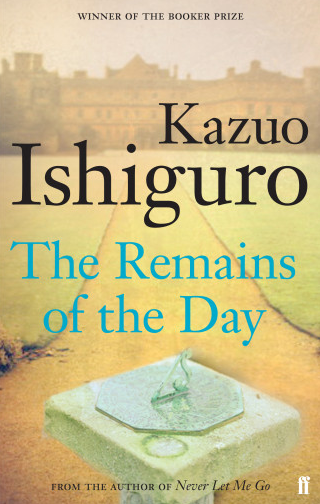Half a dozen years ago, I was delighted to be asked by Faber & Faber to interview Kazuo Ishiguro for a special two-part podcast to mark the publication of his first collection of short stories, Nocturnes. In the first part, we focused on the new book, and in the second I asked him about his background, previous novels, and the effects of early success (and intriguingly, he makes what I think must have been one of his first public indication that he was working on an idea which would become the 2015 novel, The Buried Giant). To listen to the podcasts, click on the links below. To whet your appetite, here are a couple of extracts from our conversation.
Kazuo Ishiguro
Early on, when I was six or seven, I very much thought of Japan as my home and I very much thought we were about to return at any moment. And I was much more in touch with Japanese culture then. I was being sent comics and books so there was an attempt to keep up the Japanese side of me…
But I think as the years went on, in that way that children do, I stopped thinking really about Japan in any conscious way. Of course when you’re eight or nine, what’s going to happen in three months’ time is just far too distant to worry about, let alone what’s going to happen at the end of the year. So I still intellectually knew that we were likely to return to Japan at any point… But I know that another part of me never believed that would happen. Perhaps that was foolish, but I was quite confident I was going to remain in Britain.
 It was really when I was fifteen when that big decision was made. That was the first time it occurred to me that it was for real, that there was a possibility that my parents could go back and leave me in England… And then the decision was made – my father turned down a university position. And that was a kind of a watershed point in my life, I think, when I thought, ah yes well, I am here now but Japan actually remained an important part of my life in my head, but it ceased to be somewhere I was really going to go.
It was really when I was fifteen when that big decision was made. That was the first time it occurred to me that it was for real, that there was a possibility that my parents could go back and leave me in England… And then the decision was made – my father turned down a university position. And that was a kind of a watershed point in my life, I think, when I thought, ah yes well, I am here now but Japan actually remained an important part of my life in my head, but it ceased to be somewhere I was really going to go.
And so I was left with this strange alternative home that I didn’t know what to do with, because I wasn’t going to go back there. It was fading in my head, in memory. I was old enough to realise it was literally fading in the sense that that kind of Japan was disappearing. Japan changed enormously between 1960, when the family left, and the beginning of the 70s.
So in a sense although I started to think of myself very much as British, I think something was born in me that became much more concerned about Japan – how do I place Japan in my head, what does it mean to me? And if it’s going to just fade in my mind, shouldn’t I do something to preserve it? And in fact aren’t there many things that are very precious for me in that little world of memories and speculation, that I used to call Japan? Isn’t there something very precious about that? And I shouldn’t just let it disappear with the years, so I’ll just turn into some sort of Englishman.
Now looking back, I think it was the culmination of that process that started me writing, because when I started to write fiction I did so quite suddenly. I didn’t really have any great ambitions to be a writer before that, and in my early 20s, I found myself writing stories that very much recreated that Japan that I always thought about, and so I began by writing Japanese stories and then Japanese novels, set very much in my Japan. And I think that was very much some sort of answer to this question, what do I with this precious, but non-existent and rapidly fading Japan? Well, the answer ended up, preserve it in a novel, put it in a novel…
Podcast: Play in new window | Download
